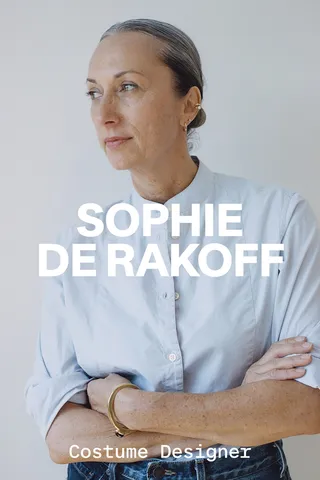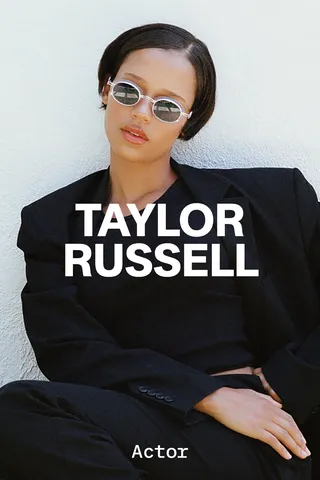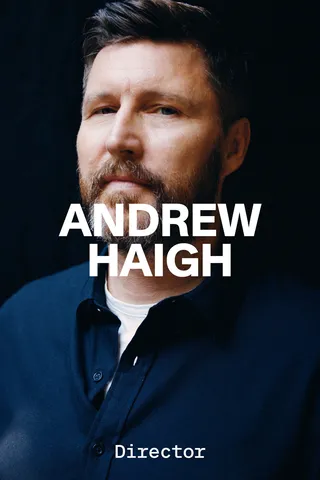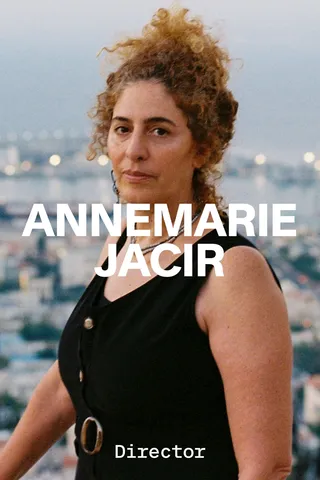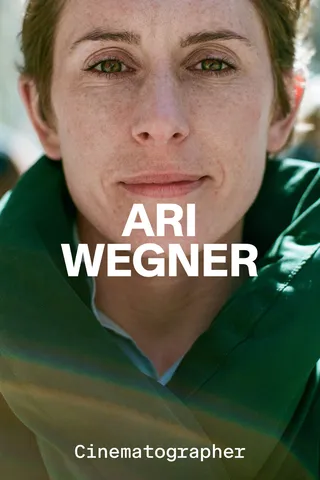Ed Lachman
You haven’t seen color until you’ve seen it through veteran DP Ed Lachman’s camera, be it the mellow yellows of early Steven Soderbergh—the golden gaze of Erin Brockovich driving through the California desert—or the cool reds and blues in Todd Haynes’s Carol. Lachman was born in New Jersey in 1948 and studied at Harvard and in France before landing at Ohio University to pursue film. Since 1974, when he shared credit on The Lords of Flatbush, the New York–based Lachman’s cinematography has helped define American independent cinema, with images that are textured, direct and humanist. Demonstrating startling range and flexibility across material (he has worked with everyone from Paul Schrader to Mira Nair), Lachman casts an unflinching eye, be it on Madonna’s downtown drifter in Desperately Seeking Susan or a pile of dead cows in Dark Waters. Twice nominated for his work with Haynes, Lachman was honored with two more Academy Award nominations for his work with Pablo Larraín (El Conde, Maria).
my FILM LIST
Click each title to discover our curator’s notes and where to watch
I consider the director and writer Dagupta to be a lesser-known director on the level of fellow Bengali director Satyajit Ray. The artfulness in how Dasgupta used these near/far relationships with the camera in widescreen recalls the cinema of David Lean. It tells the story of a young girl, Lati, whose mother is a prostitute, living and working in a brothel in rural India. Unwilling to pay the price of material survival, the daughter runs away to Calcutta to get an education and achieve emancipation.
{{ All Items }}
A documentary compilation that follows the thoughts of Siegfried Kracauer, the cultural critic and film theorist of German cinema, from his book From Caligari to Hitler. Rüdiger Suchsland’s film of the same name examines the upheavals and the decay of values in German society using the themes in their cinema from 1895 to 1933. It seems prescient and befitting for our own current time.
{{ All Items }}It is the film I had always wanted to see but missed. When I finally did, I was completely enthralled—what a treasure. Bill Morrison is a filmmaker who has made such features as Decasia, and he uses found footage in astounding and evocative ways with his lost-and-found tales. Dawson City: Frozen Time tells multiple stories about the coincidence of the final years of the 19th century, with the invention of the cinema and the gold rush in northwest Canada. Morrison constructs almost metaphysical narratives from unearthed fragments of nitrate films found in the frozen tundra, still partly preserved. The newsreels and silent films from the 1910s and the ’20s become a backdrop to the history of the boom and bust of the gold rush in Dawson City. The greed of wealth, exploitation of workers, degradation of the environment and the growth of the entertainment industry are all part of Dawson City: Frozen Time. Morrison as a filmmaker, in the most masterful way, rewards us beyond the riches of the gold.
{{ All Items }}The director immediately draws you into a story that asks you to put the pieces together throughout the film. It’s a story about a 17-year-old girl whose potential for love and dreams is violated by sexual assault. The pain becomes reinforced and internalized as our protagonist, Lena, navigates her disengaged family, broken medical community and society. By the end of the film, there is hope that perhaps she finds a future where she can control her own life. Director Tereza Nvotová uses documentary observation for fictional storytelling. Scriptwriter Barbora Namerova’s approach to morally contentious issues and how they are depicted offers insight into the problems a rape victim faces in society. The subtlety and vulnerable performance of actor Dominika Morávková as a middle-class, ordinary high school girl contribute to this extraordinary, powerful film.
{{ All Items }}All right, this is hard to explain but definitely one to experience. This is a film of fixed shots that document and contemplate life as nothingness, and yet it all becomes something in a beautiful and poetic sense. It’s shot around the world, and Iggy Pop narrates over the top of it all, with ruminations about politics and personal relations. It’s like a tone poem, and it’s a remarkable idea —how do you film nothingness?
{{ All Items }}This could be considered a hybrid type documentary, but I see it more as a poetic narrative within a lyrical story about a late-night eatery in Taipei. The owner of the restaurant and other characters enact a Zen exercise, observing customers’ isolation in the city, mostly at night.
{{ All Items }}Featuring four principal characters whose stories interweave over the course of a single day, this is really a four-hour film about taking responsibility for your own actions, as each of these characters is somehow betrayed. Sadly, Hu Bo committed suicide between finishing this film and its release. This feature, along with his novel, short stories and short films, will commemorate his extraordinary talent and voice in modern cinema. It’s composed, narratively and visually, in its staging, which creates economy and emotional weight.
{{ All Items }}This has a remarkable narrative, an expressive, minimalist visual style and restrained performances. It was made by a Bosnian-Dutch filmmaker when she was 22 years old. We follow a young woman’s journey from Holland to Bosnia to seek a resolution with her father. Its lyrical storytelling immerses you in this character whose story becomes one of emotional self-discovery and asks questions of identity and cultural migration.
{{ All Items }}The destiny of a son and his mother are linked by natural forces in Galicia in northern Spain—which seems almost like a world of its own. We see the son leaving prison after serving time for being accused of lighting fires in the forest. Laxe’s film is about how nature renews and heals itself in spite of man’s inability to understand one another.
{{ All Items }}This is a documentary about the filmmaker’s mother and father. It’s a story of Iran’s modern history of struggle between secularism and Islamic ideology. It’s also a remarkable story of Khosrovani’s parents’ arranged marriage in Switzerland before they go to live in Tehran. The film uses narrative devices that show the transformation of the family’s connections to each other, with a recurring tracking shot of the interior of their house as it changed over time, Super 8 films and photographs of the family history depicting how the Islamic revolution affected their lives. It is an X-ray of Iranian society and one family living in it.
{{ All Items }}Writer-director Lili Horvát’s seductive psychological drama is about memory, love and desire. Horvát, who also made 2015’s The Wednesday Child, creates a seductive and beautiful film about a Hungarian neurosurgeon, Márta Vizy, who is proficient in understanding diseases that affect the brain but is unable to interpret the mysteries of her own mind. In the end, love itself may be our neurological disorder. Cinematographer Róbert May and Horvát’s images, arrestingly shot in 35mm, become more hidden and obscured through shadows, light and framing that composes the female protagonist Márta’s illusions and challenges us to solve the labyrinth of her experience.
{{ All Items }}A film about borders without borders. A film about war, and the pain after war. A film about loss and displacement and what’s left to hold on to. A film without the need for words. A film that almost can’t be classified, with the authenticity of a documentary but that is also a narrative poem. The Italian filmmaker Gianfranco Rosi’s compassion over the course of three years with and without his camera in Syria, Lebanon, Iraq and Kurdistan evokes our compassion. What more can you ask of a filmmaker? We aren’t able to hide in our innocence but slowly become part of these families, communities and the losses in their souls through his camera in our (own) suspended futures.
{{ All Items }}Janis Rafa is known as a Greek conceptual artist, but she’s also a talented filmmaker and made this incredible film about relationships that blur the line between animals and humans, and makes a sort of equality between all creatures, whatever state they’re in. It’s poetic, but also rooted in a reality that reveals how humans affect their environment—even between the living and the dead.
{{ All Items }}
Ben Hania’s film, about a Syrian man fleeing persecution and struggling to be united with the woman he loves, is a cautionary tale about exploitation and commodification, not only in the art world but rather how everything has become a commodity. This is a film that deals with the excess and theater of the absurd, commingled with a social commentary about immigration into Europe. It’s also beautifully realized visually by Lebanese cinematographer Christopher Aoun.
{{ All Items }}This film is about the act of seeing and witnessing and how an act of violence contaminates our souls. Yana is the wife of a Jehovah’s Witness minister in an Orthodox Georgian town that is prejudiced against them. There’s something inscrutable here and something ethereal. It’s executed in a way that keeps the audience at a distance but also near, which only amplifies the horror.
{{ All Items }}A film from a young bold Korean female director that deals with the taboos of speaking out against the grain of South Korean social issues and mores. It deals with a mother and wife who wouldn’t sacrifice herself to support her family’s ambitions by not reporting a horrific rape that she’s been part of—she’s compelled to expose it.
{{ All Items }}
“I'm always looking, keeping my eyes open to see what's around me.”
RELATED MATERIAL
Essays, interviews and other connections
![Set Ablaze: Oliver Laxe]() Set Ablaze: Oliver Laxeread
Set Ablaze: Oliver LaxereadFire Will Come director Oliver Laxe on the alchemy of wildfires, family and faith
By Yonca Talu
![We Are All Animals]() We Are All AnimalsRead
We Are All AnimalsReadWith palpably feral filmmaking, Janis Rafa’s Kala azar dethrones human supremacy in the natural order
By Wendy Ide
![Travel Diaries: Budapest]() Travel Diaries: Budapestread
Travel Diaries: BudapestreadDirector Lili Horvát on her home city of Budapest, Hungary
By Yonca Talu



